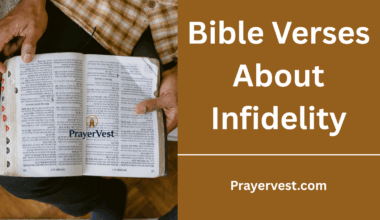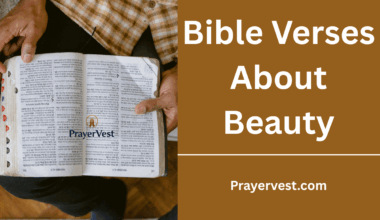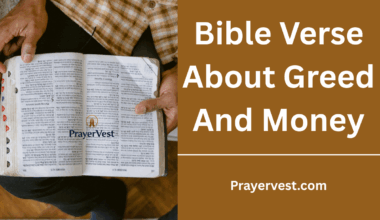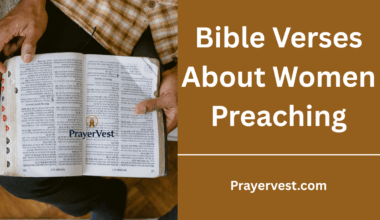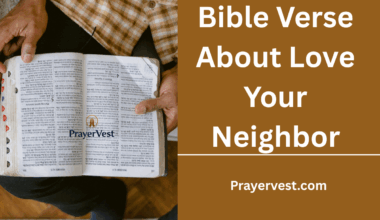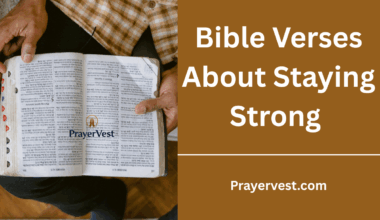One of the main themes in the Bible is freedom, which stands for both the spiritual freedom obtained in Christ and the physical release of God’s people. Scripture repeatedly demonstrates that God wants His people to live in freedom, from the account of the Israelites’ deliverance from Egypt to Jesus’ declaration of freedom to the prisoners.
This freedom comes from walking in God’s truth and includes more than just the lack of bondage; it also includes joy, serenity, and purpose.
As believers are reminded that Christ has released us from the grip of sin and death, freedom in the New Testament becomes a more profound spiritual significance. In his numerous writings on freedom in Christ, the apostle Paul teaches that believers are now led by the Spirit rather than the law.
This refers to the freedom to live in righteousness, love, and submission to God’s will rather than the freedom to sin. Giving ourselves over to Christ, who removes all restrictions and enables us to live completely in accordance with God’s plan, is the path to true biblical freedom.
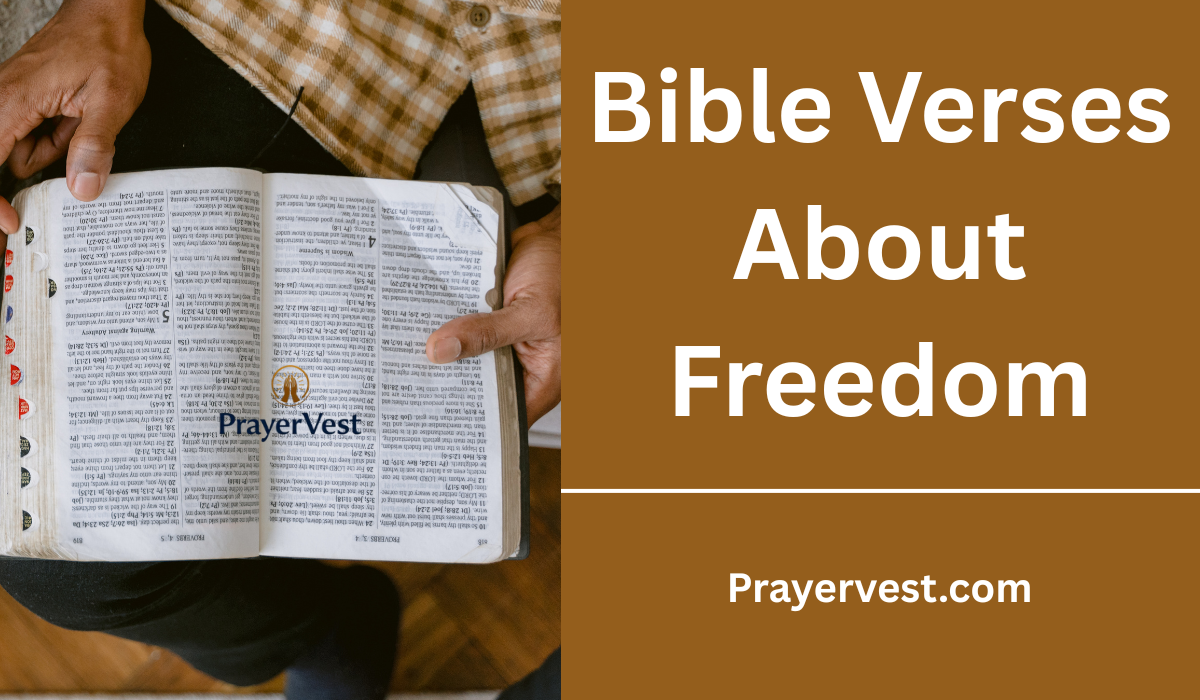

Examining Bible passages pertaining to freedom enables us to comprehend that God’s liberty is comprehensive and affects all facets of life. It is the freedom to love, serve, and worship without restriction, as well as the freedom from oppression, shame, guilt, and fear. These verses offer direction for walking in the liberty Christ has already gained for us, as well as encouragement for those yearning to be freed from personal troubles. Studying them serves as a reminder that genuine freedom is a gift from God Himself and cannot be acquired or granted by the outside world.
40 Inspiring Bible Verses About Freedom (2026)
1. Exodus 14:13
“Do not be afraid. Stand firm and you will see the deliverance the Lord will bring you today.”
At the Red Sea, the Israelites were trapped between Pharaoh’s army and the waters before them. In this moment of fear, Moses assured them of God’s deliverance and freedom from slavery. This verse highlights that true freedom comes when God intervenes on behalf of His people, breaking the chains of oppression and leading them into new beginnings.
2. Leviticus 25:10
“Proclaim liberty throughout the land to all its inhabitants.”
This verse establishes the Year of Jubilee, a time when debts were forgiven, slaves were set free, and land was restored. It is a powerful reminder that God’s design for freedom extends to every aspect of life—social, spiritual, and economic. It reflects His heart for justice, restoration, and renewal in the lives of His people.
3. Psalm 118:5
“When hard pressed, I cried to the Lord; he brought me into a spacious place.”
The psalmist testifies of God’s deliverance from distress into a place of freedom and peace. This imagery of a “spacious place” reveals that freedom is not just physical release but also an inner experience of relief, security, and rest. God’s freedom removes burdens and replaces them with peace of heart.
4. Isaiah 61:1
“He has sent me to bind up the brokenhearted, to proclaim freedom for the captives and release from darkness for the prisoners.”
This prophetic verse, later fulfilled by Jesus, shows God’s mission to liberate those in bondage—whether physical, emotional, or spiritual. Freedom here is not merely release from chains but restoration of hope, healing, and light in the midst of darkness. It is the heart of the gospel itself.
5. John 8:36
“So if the Son sets you free, you will be free indeed.”
Jesus reveals the deepest truth about freedom: it is not found in human effort or external change but in Him alone. Sin enslaves, but Christ breaks its power, giving us lasting freedom. This verse reminds us that true liberty is spiritual and eternal, found only in the redemptive work of the Savior.
6. Romans 6:18
“You have been set free from sin and have become slaves to righteousness.”
Paul explains that freedom in Christ is not the liberty to live without restraint, but the empowerment to live righteously. True freedom releases us from sin’s grip and redirects us toward a life aligned with God’s holiness and purpose.
7. Romans 8:1-2
“Therefore, there is now no condemnation for those who are in Christ Jesus, because through Christ Jesus the law of the Spirit who gives life has set you free from the law of sin and death.”
Freedom in Christ is freedom from condemnation. This verse assures believers that through the Spirit, they are no longer under the judgment of sin but walk in life and liberty. It is the foundation of spiritual freedom.
8. 1 Corinthians 6:12
“I have the right to do anything,” you say—but not everything is beneficial. “I have the right to do anything”—but I will not be mastered by anything.”
Here, Paul reminds the Corinthian church that freedom should not become an excuse for indulgence. Christian freedom is guided by wisdom, self-control, and responsibility, ensuring that nothing enslaves us again.
9. 2 Corinthians 3:17
“Now the Lord is the Spirit, and where the Spirit of the Lord is, there is freedom.”
This verse highlights the transforming presence of the Holy Spirit, who breaks chains and gives believers liberty. Freedom is not just a concept—it is a living reality that flows from God’s Spirit dwelling within us.
10. Galatians 5:1
“It is for freedom that Christ has set us free. Stand firm, then, and do not let yourselves be burdened again by a yoke of slavery.”
Paul exhorts believers to remain steadfast in the freedom Christ has purchased for them. This verse is both a declaration and a warning—freedom must be guarded so that we do not return to the bondage of sin or legalism.
11. Galatians 5:13
“You, my brothers and sisters, were called to be free. But do not use your freedom to indulge the flesh; rather, serve one another humbly in love.”
Freedom in Christ is not a license for selfishness but an invitation to love and serve others. Paul reminds us that liberty has a higher purpose—to reflect God’s love through service and humility. True freedom is found not in self-indulgence but in living for others, mirroring the sacrificial love of Jesus.
12. Ephesians 3:12
“In him and through faith in him we may approach God with freedom and confidence.”
This verse emphasizes the spiritual privilege believers have in Christ: the ability to approach God without fear or shame. Freedom here is not only release from sin but also access to intimacy with the Father. No barriers remain; through faith, we boldly draw near to God, resting in His love and grace.
13. Colossians 1:13-14
“For he has rescued us from the dominion of darkness and brought us into the kingdom of the Son he loves, in whom we have redemption, the forgiveness of sins.”
Paul paints a picture of spiritual transfer: from darkness to light, from bondage to freedom. This freedom is rooted in Christ’s redemption and forgiveness. Believers are no longer under the authority of sin or Satan but are welcomed into God’s kingdom, where freedom is eternal and unshakable.
14. 1 Peter 2:16
“Live as free people, but do not use your freedom as a cover-up for evil; live as God’s slaves.”
Peter highlights the balance between liberty and responsibility. While Christians are free, that freedom must not be abused or twisted into justification for sin. Instead, freedom is best expressed through submission to God’s will, where true liberty is found in obedience, not rebellion.
15. James 1:25
“But whoever looks intently into the perfect law that gives freedom, and continues in it—not forgetting what they have heard, but doing it—they will be blessed in what they do.”
James reminds believers that God’s Word is not restrictive but liberating. The law of Christ brings freedom by showing us how to live in alignment with God’s design. Obedience, far from being burdensome, becomes the pathway to blessing, fulfillment, and true liberty.
16. Psalm 146:7
“He upholds the cause of the oppressed and gives food to the hungry. The Lord sets prisoners free.”
This psalm celebrates God’s compassion and justice, highlighting His role as the liberator of the oppressed. Freedom here extends beyond personal salvation; it also includes God’s heart for justice in society. He is the God who defends the vulnerable and breaks both physical and spiritual chains.
17. Isaiah 58:6
“Is not this the kind of fasting I have chosen: to loose the chains of injustice and untie the cords of the yoke, to set the oppressed free and break every yoke?”
God redefines true worship and devotion. Fasting without justice is empty, but when worship leads to breaking oppression, it reflects His heart. This verse reminds us that freedom is not just personal—it has communal and societal implications. God’s people are called to be agents of liberation.
18. Jeremiah 34:15
“Recently you repented and did what is right in my sight: Each of you proclaimed freedom to your own people. You even made a covenant before me in the house that bears my Name.”
Jeremiah recounts how the people once obeyed God by releasing their fellow Israelites from bondage. While their obedience was short-lived, it reveals God’s desire for His people to extend freedom to one another. It shows that true covenant faithfulness is demonstrated in liberating others.
19. Luke 4:18
“The Spirit of the Lord is on me, because he has anointed me to proclaim good news to the poor. He has sent me to proclaim freedom for the prisoners and recovery of sight for the blind, to set the oppressed free.”
Jesus inaugurates His ministry with this declaration, showing that the gospel is a message of freedom. It is both spiritual and practical—healing the broken, liberating the enslaved, and restoring the marginalized. This verse encapsulates Christ’s mission: freedom for every captive heart.
20. Acts 13:38-39
“Therefore, my friends, I want you to know that through Jesus the forgiveness of sins is proclaimed to you. Through him everyone who believes is set free from every sin.”
Paul proclaims the heart of the gospel: forgiveness and freedom through Jesus Christ. No sin is too strong, no bondage too deep for His power. Freedom here is absolute and complete, given to anyone who believes. It is the good news that breaks chains and offers new life.
21. Acts 16:25–26
“About midnight Paul and Silas were praying and singing hymns to God, and the other prisoners were listening to them. Suddenly there was such a violent earthquake that the foundations of the prison were shaken. At once all the prison doors flew open, and everyone’s chains came loose.”
This powerful account shows both physical and spiritual freedom. Even while bound in prison, Paul and Silas demonstrated inner liberty through worship. God responded supernaturally, breaking their chains. The story teaches us that true freedom cannot be confined by walls or shackles; it is rooted in faith and God’s power to liberate.
22. Romans 8:21
“That the creation itself will be liberated from its bondage to decay and brought into the freedom and glory of the children of God.”
Paul reveals that freedom is not just for people but for all creation. Sin has corrupted the world, but God’s redemption will one day free it from decay. This cosmic perspective shows freedom as both personal and universal—a promise of restoration for all of God’s creation.
23. 1 Corinthians 10:23
“‘I have the right to do anything,’ you say—but not everything is constructive.”
Christian freedom is balanced by responsibility. While believers have liberty in Christ, Paul cautions that not every action builds up or benefits others. True freedom considers the good of others and seeks to edify, not to tear down. Liberty without love can become another form of bondage.
24. Galatians 2:4
“This matter arose because some false believers had infiltrated our ranks to spy on the freedom we have in Christ Jesus and to make us slaves.”
Paul defends the gospel of grace against those who wanted to impose legalistic bondage. Freedom in Christ is always under threat from false teaching that seeks to enslave believers again. This verse reminds us to guard the gospel truth that our freedom rests in Christ alone.
25. Galatians 4:7
“So you are no longer a slave, but God’s child; and since you are his child, God has made you also an heir.”
Paul explains that freedom is rooted in our new identity as God’s children. No longer slaves to sin or fear, believers are heirs of God’s promises. This is not just freedom from something—it is freedom to live as sons and daughters of the Most High.
26. Galatians 5:16
“So I say, walk by the Spirit, and you will not gratify the desires of the flesh.”
Freedom is sustained by life in the Spirit. Paul teaches that living in step with the Spirit guards believers against falling back into sinful desires. True liberty is not self-indulgence but alignment with God’s Spirit, which empowers holy living.
27. 1 Timothy 2:5-6
“For there is one God and one mediator between God and mankind, the man Christ Jesus, who gave himself as a ransom for all people.”
Christ’s sacrificial death is the ultimate ransom that sets humanity free. By serving as the mediator, Jesus bridges the gap between God and man, offering liberty from sin and eternal access to the Father. This freedom is universal in scope, yet deeply personal in experience.
28. Hebrews 2:14-15
“Since the children have flesh and blood, he too shared in their humanity so that by his death he might break the power of him who holds the power of death—that is, the devil—and free those who all their lives were held in slavery by their fear of death.”
Through His death, Jesus destroyed the power of the devil and freed humanity from the fear of death. This passage shows freedom not just from sin, but from the deepest human fear—death itself. In Christ, we find courage and liberty to live without fear of the grave.
29. Hebrews 4:16
“Let us then approach God’s throne of grace with confidence, so that we may receive mercy and find grace to help us in our time of need.”
Because of Christ’s sacrifice, believers are free to approach God’s throne boldly. This freedom in prayer and worship reveals intimacy with God as our Father. We are no longer distant or excluded, but welcomed to receive grace whenever we need it.
30. 1 John 1:9
“If we confess our sins, he is faithful and just and will forgive us our sins and purify us from all unrighteousness.”
This verse highlights freedom through forgiveness. Confession is the doorway to cleansing and release from guilt. God’s faithfulness ensures that those who repent are set free from shame and restored to righteousness. Freedom here is not abstract—it is deeply personal and transformative.
31. 1 John 4:18
“There is no fear in love. But perfect love drives out fear, because fear has to do with punishment. The one who fears is not made perfect in love.”
Freedom in Christ means liberation from fear. God’s perfect love removes the dread of punishment and replaces it with security in His grace. This verse reveals that the more we embrace God’s love, the freer we become—no longer enslaved by fear, but anchored in divine assurance.
32. Revelation 1:5
“To him who loves us and has freed us from our sins by his blood.”
The opening of Revelation celebrates the freedom Christ has secured for believers through His sacrifice. His blood not only redeems but also liberates from sin’s bondage. This verse reminds us that freedom is the very foundation of our identity as God’s redeemed people.
33. Revelation 21:4
“He will wipe every tear from their eyes. There will be no more death or mourning or crying or pain, for the old order of things has passed away.”
This promise describes ultimate freedom—the eternal liberation from suffering, sorrow, and death. In the new creation, freedom is perfected, as God restores His people to everlasting peace. It is the final and complete victory of freedom over bondage.
34. Deuteronomy 30:19
“This day I call the heavens and the earth as witnesses against you that I have set before you life and death, blessings and curses. Now choose life, so that you and your children may live.”
Freedom includes the ability to choose. God places before His people the path of life or death, blessing or curse. Choosing obedience is choosing freedom, for life in God’s will leads to flourishing. This verse emphasizes responsibility in the exercise of liberty.
35. Joshua 24:15
“But as for me and my household, we will serve the Lord.”
Joshua boldly declares his choice of freedom—to serve the Lord. This verse highlights that real liberty is found in committing ourselves fully to God. It is a call for every household to embrace freedom not as independence from God but as joyful dependence on Him.
36. Nehemiah 9:27
“So you delivered them into the hands of their enemies, who oppressed them. But when they were oppressed they cried out to you. From heaven you heard them, and in your great compassion you gave them deliverers, who rescued them from the hand of their enemies.”
Israel’s history shows a cycle of oppression and deliverance. God’s compassion repeatedly brought freedom when His people repented. This verse reminds us that freedom is not self-earned but a gift of God’s mercy, and He responds to the cry of the oppressed.
37. Psalm 119:45
“I will walk about in freedom, for I have sought out your precepts.”
The psalmist connects freedom with obedience to God’s Word. Rather than restricting, God’s commands create a path of liberty. Walking in His truth frees us from the snares of sin and gives us the confidence to live unbound in His will.
38. Proverbs 14:27
“The fear of the Lord is a fountain of life, turning a person from the snares of death.”
True freedom begins with reverence for God. The fear of the Lord brings life and protects us from destructive choices. This verse shows that freedom is not the absence of boundaries, but the blessing of living within God’s protective wisdom.
39. Isaiah 43:1
“Do not fear, for I have redeemed you; I have summoned you by name; you are mine.”
God assures His people of their freedom through redemption. To be called by name is to be chosen and cherished, no longer enslaved to fear or abandonment. This verse beautifully expresses freedom as belonging—secure in God’s redeeming love.
40. John 14:27
“Peace I leave with you; my peace I give you. I do not give to you as the world gives. Do not let your hearts be troubled and do not be afraid.”
Jesus promises peace as the fruit of true freedom. Unlike the temporary peace of the world, His gift brings lasting calm that frees the heart from fear and anxiety. This verse teaches us that freedom is not only release from external bondage but also inner tranquility rooted in Christ.
Conclusion
To sum up, Bible passages about freedom serve as a reminder that true liberty lies in the enduring power of God’s Word and the completed work of Christ, not in fleeting wins or worldly goals. According to the Bible, freedom entails being set free from sin, guilt, and fear so that we might live joyfully and trustingly in God’s promises. This heavenly gift of liberty changes our everyday walk with the Lord, how we treat others, and how we view ourselves.
Ultimately, God’s freedom is both a calling and a privilege. It is given to us so that we can serve others, live righteously, and exalt His name—not so that we can indulge ourselves. We are reminded that we are no longer constrained in Christ—that we are free to live fully, love profoundly, and confidently in the destiny God has planned for us—as we reflect on these verses and apply them to our lives.

